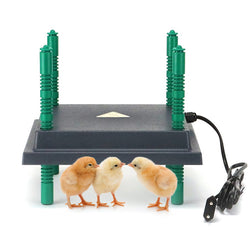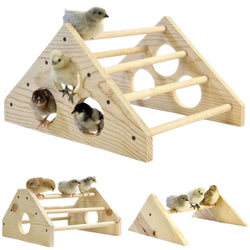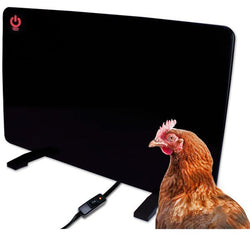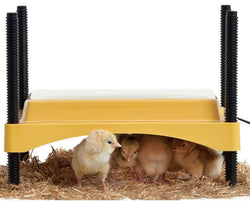Refusing to Roost in the Coop - Top 5 Solutions
Back to blog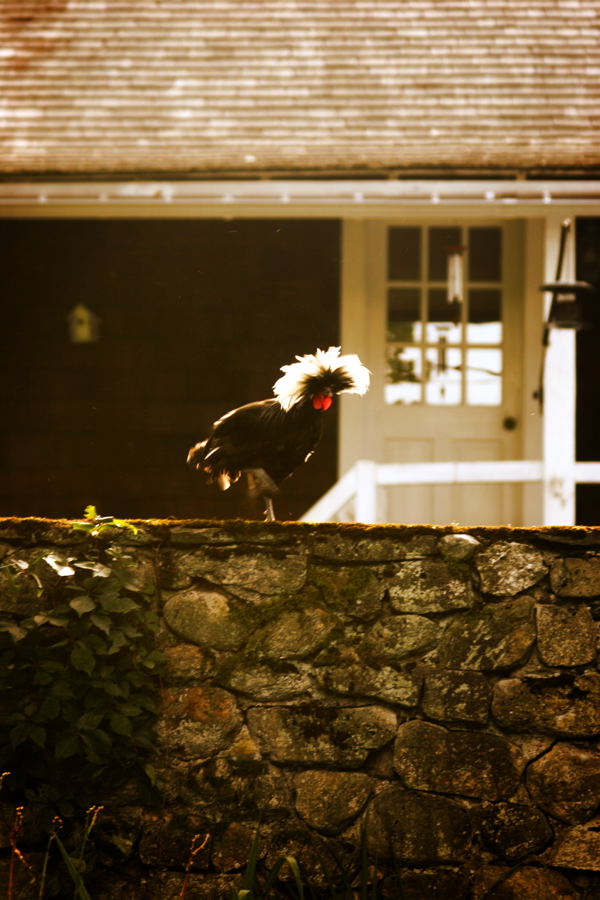
When your chickens are refusing to roost in the coop, it can be a big problem. A group of cats is called a glaring, which well describes the look cats give you if you try to herd them. This look is often bestowed from above, as out of reach as possible... or from beneath the couch or some other more or less unreachable place. Chickens do not care for being herded, either. They are much like cats in that way. In our book, we call herding chickens about "the goofiest thing you'll ever do." We say that with good reason.
Chicken owners know you don't normally need to herd your chickens. Chickens instinctually come home to roost on their own---most of the time. But there are some situations where refusing to roost is what makes sense to your chickens. If that happens, you'll be reduced to herding them. I'd suggest that the world needs a new group noun for chickens when they're being herded. Your chickens are no longer a convenient flock. Perhaps they are a "drift" of chickens, arrayed in small, haphazard groups in low branches. Or--more akin to the descriptive "glaring" of cats---a "gawking" of chickens, or a "complaint" of chickens. If your chickens are refusing to roost in their coop at night, you'll want to take care of the issue in short order; you wan't want to have to try to herd them every night.
Here are the top 5 solutions for when your chickens are refusing to roost in their coop.
1. They haven't learned where "home" is, yet. Of course, we as humans know we have prepared a lovely coop for our pet chickens. We have food, water, nests, roosts, and perhaps even chicken toys. But when you move your young chickens from the brooder to the coop, they won't automatically understand that they have a new home. To your young chickens, 5 or 6 weeks old when you move them, it's not that they're refusing to roost in their home. It's that they think of the brooder as their home. Solution? Show your chickens where their new home is. Keep them enclosed in their coop or 3 or 4 days before letting them out into the run or yard. Be sure, of course, that you do this in reasonable weather--you don't want to keep them shut up inside a coop during the heat of summer if the inside of the coop is going to get as hot as a car interior! But once they get used to sleeping inside the coop, it will become home, and you won't have errant hens looking to return to a brooder that has been sanitized and packed away.
2. Your coop needs cleaned. Another reason your chickens may be refusing to roost in the coop at night is if you're not keeping the coop clean enough. Despite the reputation of chickens as "dirty" birds, they are not stupid and will not willingly stay in an unhealthy environment. Don't get me wrong; they don't understand whether their nests or roosts are sanitized, of course. But when droppings build up without being cleaned out, they can produce ammonia. And yuck. If you smell it, your chickens---much lower to the ground and closer to the source---will have been suffering a long time. They'll be refusing to roost in the coop when they can't breathe in there! Solution? Duh! Clean out the coop. And make a garden, while you're at it. Chicken manure makes great compost.
3. Your hen is broody. Whether we want them to or not, occasionally a hen will want to hatch her eggs. Even if you don't have any roosters (and thus the eggs aren't fertile and can never successfully be incubated into chicks), some hens will go broody. It's a hormonal condition. Some breeds are more prone to this than others. Silkies and Orpingtons, particularly, are known for frequent broodiness. Normally, a hen will go broody in a nest in the coop, but occasionally you'll have a hen who wants to hide beneath your porch or some other place that is not necessarily secure from predators. Solution? Well, sorry. This one is rough. She is instinctually drawn to go back to the area she's designated as her safe nest. You'll just have to carry her back to the coop. Or failing that, you might decide to keep all your chickens in the coop for a few days until such time as your hen gets used to nesting inside, or your hen's broodiness is broken.
4. There is tension in the flock. If there have been pecking order disputes in your flock, sometimes the girl or girls lowest in the pecking order will prefer to stay outside the coop. Generally speaking, there will be little tension in an established flock that has enough room in the coop, and plenty of space at feeders and waterers. If you keep roosters, you also want to make sure you have enough hens per rooster so the hens don't get overbred and the roosters don't tussle. Otherwise, you may find you have a hen or two who wants to hide in the trees. Solution? Make sure you give your flock---or gawking---of chickens plenty of room. Expand your coop, or run, or reduce the size of your flock. In some cases, they may have plenty of everything, but you keep aggressive breeds, or one of your birds is just, well, a jerk. If there is one troublemaker, you may consider rehoming him or her, or housing that bird separately.
5. There are predators or pests bothering them in the coop If most or all of your flock suddenly refuses to retire to the coop, it's possible they've been visited by a predator at night while they're trying to sleep. Another possibility is that the coop is infested with mites or some other pest. Some types come out at night to feed on your birds while they're trying to rest. It would be like trying to sleep in a lice-ridden bed. You wouldn't want to do that either! You might choose to pitch a tent in the yard, instead. Solution? Make sure your coop is secure from predators, and treat for any pest problem.
One final note: after you've dealt with whatever issue is causing your birds to dislike roosting in the coop, you may need to ALSO follow up with solution #1, too: keep them enclosed for a few days. Chickens are creatures of habit, and they may have to relearn where home is, so they'll know where to return to roost.
